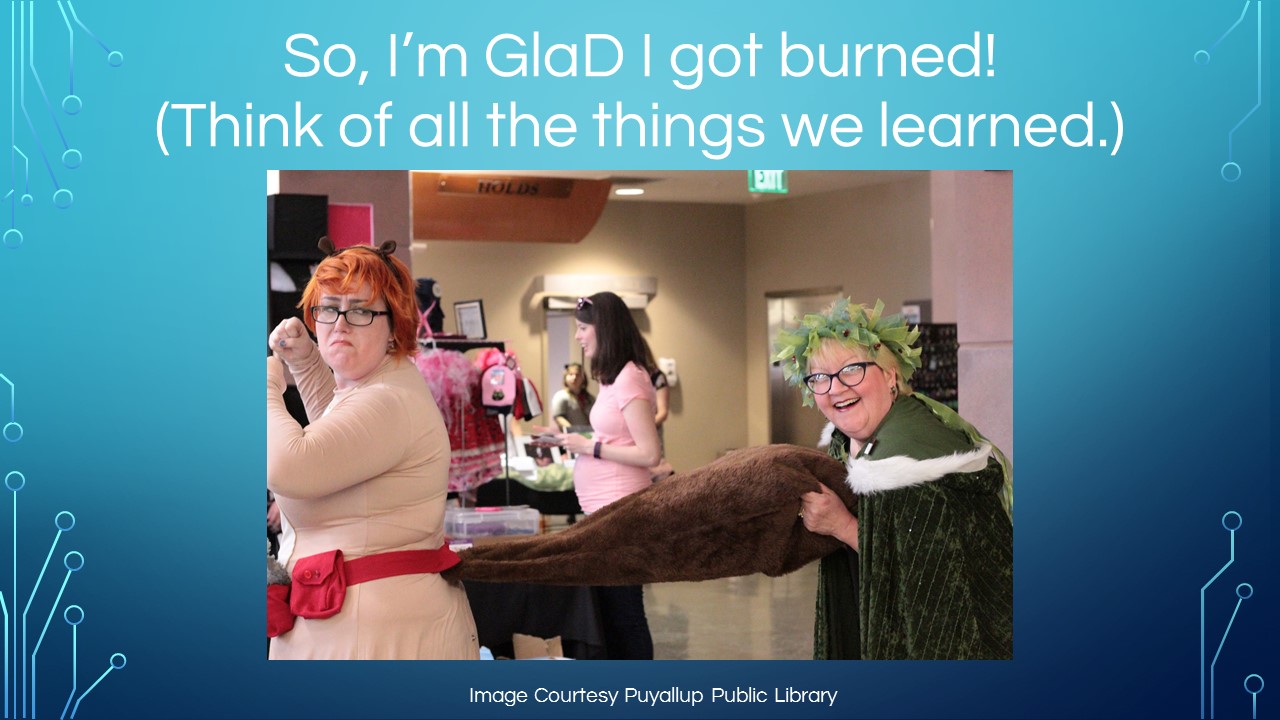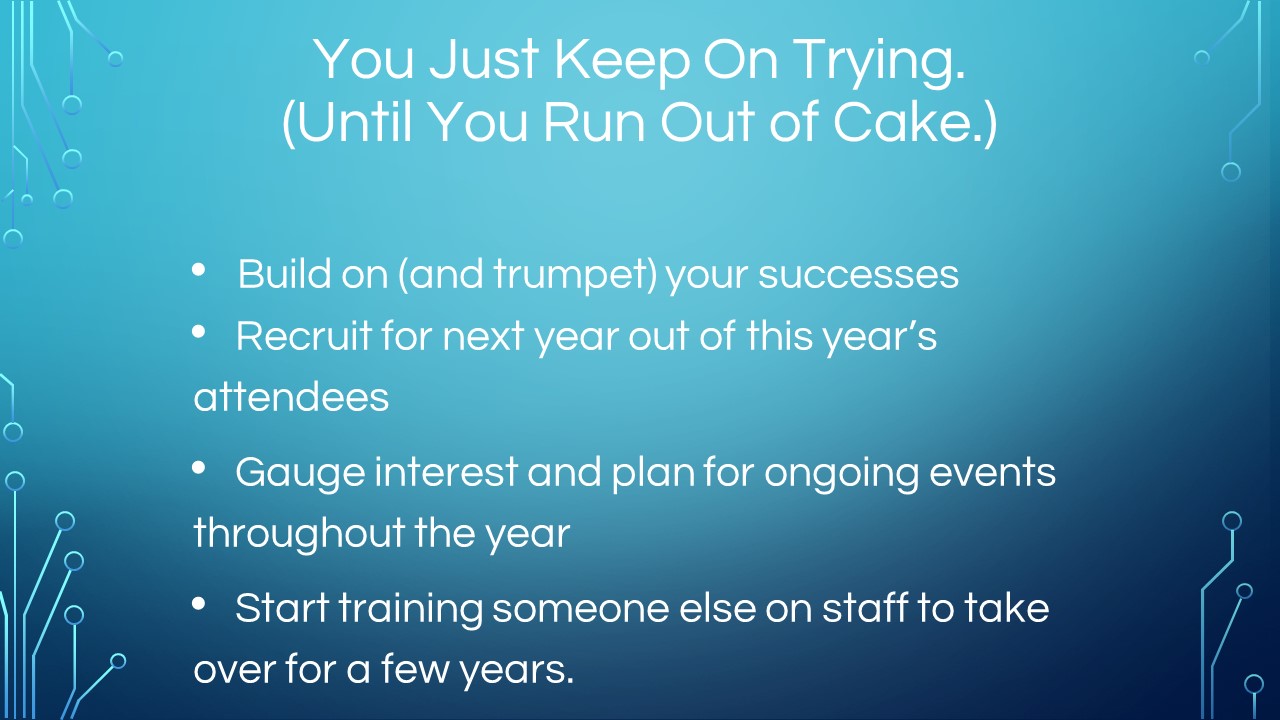

Lessons for Next Time
Congratulations on putting on your own mini-con! It's been the culmination of a lot of work for you and all the staff that have helped you out. Pat yourselves on the back, take a breath, and then it's time for the debriefing.
Talk to the people who helped you out with the mini-con about their impressions of the event. Here are some of the questions you might ask:
- How many people did you get to attend?
- Were there any things that went really well?
- Were there things that went really poorly?
- Where might there be possibilities for improvement?
- Where might there be places where volunteers might help you run a better con?
Once you have an idea of how the con went and how specific events might have gone, make sure to package up the good stuff and use it to promote what an excellent job you did. Some of those choice elements might get turned into marketing material for the next time that you put on a mini-con event. (Makes sure you got all the correct permissions.)
If you're planning on having volunteers help out next year, the pool of attendees for this year is a great group to recruit from. They've already seen how awesome an event you have put on, and many of them will be eager to help make it even better than it was. This can help with those teens that are hungry or required to handle service hour commitments.
Those attendees might also help you out in planning other, smaller events that happen all throughout the programming year, or what might be secretly test events for things that might make it into the con program, if there's a big enough interest in them outside of the con.
Finally, and perhaps most importantly, congratulations on running your con. Who's going to run it after you? A few years of doing this programming may be all that you want to be able to do, or all that you're able to do, and then someone else will have to take over as the primary runner and you get put into emeritus status. Or you might change jobs or classifications. So, if you haven't already found a capable assistant showrunner who can take over in case something happens to you, get one for next time. The secret to events that go on for years and years is having a chain of succession where the next person to take over is being trained while the current runner is putting on the events. Do this thing, and thank yourself for doing it early on when you end up in a situation where you can't run the event yourself.
[Additional note: This presentation was given well before the COVID-19 outbreak, on the assumption that large gathering events would be a normal part of library programming for years to come. The way things are now may be very different than the way things were when this presentation was put on.]